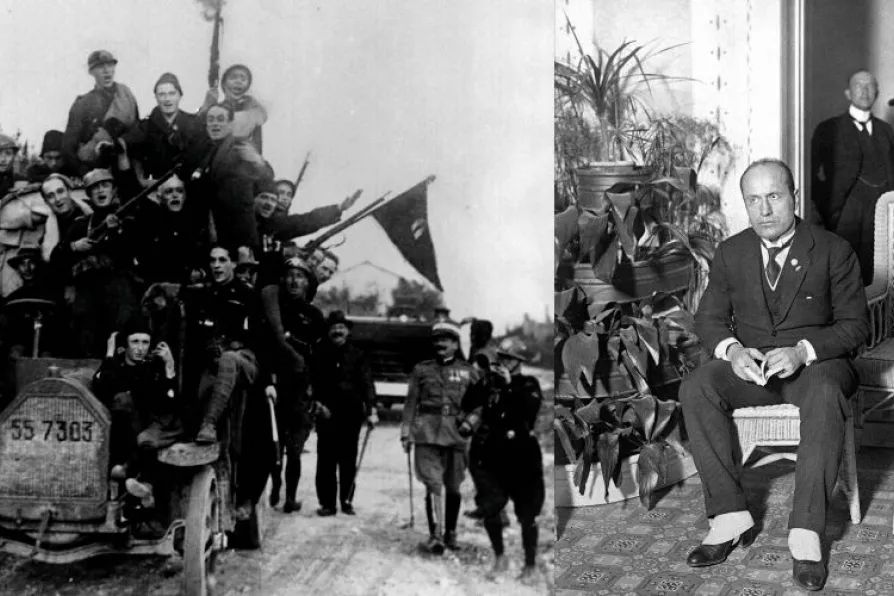Data on regional deprivation in England shows us an unequal society, but what to do about it remains unanswered argue ROX MIDDLETON, LIAM SHAW and MIRIAM GAUNTLETT

 DARK DAY: The first contingent of armed Italian fascisti arriving in
Rome in 1922; fascist leader Benito Mussolini
DARK DAY: The first contingent of armed Italian fascisti arriving in
Rome in 1922; fascist leader Benito Mussolini
AS HE prepared to take control of Italy with plans already under way for the march on Rome, Mussolini warned the British government that he would unleash “maximum-degree” retaliations against British ships in Italian ports if an anti-fascist protest by the British unions was allowed to go ahead which threatened to embarrass him in front of the whole world.
The protest, led among others by the British National Union of Railwaymen and the National Federation of Transport Workers, was the first major anti-fascist event outside Italian borders and was called at a time when Mussolini was sending out warnings that he was ready to advance, with up to 300,000 Blackshirts at his command.
The march on Rome eventually took place on October 28 1922 and the Italian king appointed Mussolini prime minister.

This year’s Bristol Radical History Festival focused on the persistent threats of racism, xenophobia and, of course, our radical collective resistance to it across Ireland and Britain, reports LYNNE WALSH

The annual commemoration of anti-fascist volunteers who fought fascism in Spain now includes a key contribution from Italian comrades











